The Paradine Case (1947)
Directed by: Alfred Hitchcock
Written by: Alfred Hitchcock, Alma Reville, Ben Hecht, David O. Selznick, James Bridie, Robert Hichens
Starring: Alida Valli, Ann Todd, Charles Laughton, Gregory Peck
HCF REWIND NO. 213: THE PARADINE CASE [US 1947]
RUNNING TIME: 114 min
AVAILABLE ON DVD
THE HITCHCOCK CAMEO: Disembarking from the train at England’s Cumberland Train Station, carrying a cello case, just behind Anthony Keane
REVIEWED BY: Dr Lenera, Official HCF Critic
Maddalena Anna Paradine, an enigmatic young foreign woman currently living in London, receives a visit from the police who arrest her on suspicion of poisoning her older, blind husband, a retired military man, at their grand home in the Lake District. Her solicitor Sir Simon Flaquer hires Anthony Keane, a brilliant and successful barrister, to defend her in court. Although Keane has been happily married for 11 years, he instantly becomes deeply infatuated with this exotic, mysterious, and fascinating client. Keane’s kind-hearted wife Gay sees his infatuation, and although her husband offers to get off the case, she presses him to continue. She knows that a guilty verdict, followed by Paradine’s hanging, will mean that she will lose her husband emotionally forever….
Hitchcock’s four films after Notorious are generally considered to be a significant dip in quality and perhaps they are, but I will certainly make cases for two of the four films being much better than many think. That man Hitchcock may have made a few disappointments and sometimes fell below his own very high standard, but after about 1943 he never made an actively bad film until 1969, and it’s possible that even said 1969 film [if you’re a major Hitchcock fan you’ll know the film I’m referring to] may seem better when I eventually get to it. The Paradine Case has been often called things like ‘wordy’ and ‘dull’, and it is very wordy, though it’s only really dull if you think you’re going to watch a thriller full of knife-edge suspense. Taken as a courtroom drama utilising the hoary old chestnut of the man [though rarely done so compellingly as here] defending an accused woman and falling for said woman, it’s really rather good, and has some strong moments and great characters. It’s no masterpiece, feels a bit compromised by heavy cutting [see below], and definitely has less of the Hitchcock touch than the other films he made for producer David O, Selznick, but, watching it again, the only serious issue is some bad miscasting in two of the most important roles.
Selznick bought the rights to Robert Smythe Hichens’ then unpublished novel in 1933, with Greta Garbo in mind to star – indeed, Garbo was Hichens’ inspiration for Mrs. Paradine. John Barrymore, Lionel Barrymore and Diana Wynyard were to star, but Howard Estabrook’s script was rejected by the censors, who especially objected to Andre Latour, the Paradine household’s valet, being gay [one line in the existing film remains about him “not being interested in women”] , Maddelena killing herself, and Judge Thomas Horfield enjoying sending people to their deaths. A new script in 1940, to star Trevor Howard and Hedy Lamarr, was also rejected, and even the one eventually accepted in 1946, which was written by Hitchcock and his wife Alma with polishing by playwright James Bridie and Ben Hecht, had to have major alterations, especially concerning Maddelena’s shady past. Hitchcock wanted Laurence Olivier and Robert Newton to play Anthony and Andre, while Garbo turned the movie down. Filming took ages because Selznick would constantly alter the script, often after viewing rushes so lots of scenes had to be reshot, while Hitchcock was more interested in forming his own production company, the first film of which was to be a film of Helen Simpson’s period novel Under Capricorn starring Ingrid Bergman. Selznick edited the picture, then, after its premiere removed 16 min, which included more material with the Judge’s bullied wife Sophie and an elaborate tracking shot following Simon and Anthony into their office. Hugely expensive, mostly due to Selznick, The Paradine Case lost money and got mixed reviews.
The opening scene of Maddelena, who is introduced by a series of pans to the left which seem to get smaller like a spiral, being arrested in her luxurious home, taken away, stripped of her jewellery and hairpin and then bunged into a cell, is very well handled and almost fetishistic as well as prefiguring the cold realism of The Wrong Man. Anthony is hired to defend her, and his immediate infatuation [“she can’t possibly be a murderous because she’s too fine a woman” he says even when she’s told him of her sordid life] reaches an almost delirious peak where he visits her house, chiefly to find Andre the valet, and enters her bedroom. In a scene of amazing atmosphere, Franz Waxman’s evocative Maddelena theme, bursting with mystery, danger and passion, has its most impassioned airing as you really feel the woman’s presence and Anthony’s sickness. One thing I hadn’t noticed before is how similar some of this is to Rebecca, from the music to the house – even the bed is almost the same. The film makes sure we get enough of a sense of Anthony’s marriage, and an even stronger contrast in the marriage of Judge Thomas Horfield and Sophie, where we get a strong impression of a sadistic relationship. A few years ago there were rumours about the existence of the longer 131 min cut and I feel that The Paradine Case would really benefit from the extra footage fleshing out the relationships, but you get enough. Of course any film where Charles Laughton plays a major role makes all of his scenes highpoints, and here the actor who once said: “They can’t censor the gleam in my eye” is deliciously perverse, especially when he ‘tries it on’ with Gay, Anthony’s wife.
The courtroom scenes dominate the second half, and they certainly grip. Hitchcock had a replica of the Old Bailey built, then used a new technique by utilizing four cameras shooting simultaneously, each focused on one of the principal actors in the scene – multiple camera photography having been used in the past, but only to shoot the same subject. This set-up, which included elaborately choreographed crane shots, allowed Hitchcock to shoot long ten minute takes which he could then edit down. The highpoint is when Anthony, jealous of his supposed affair with Maddelena, cross-examines Andre and tears him apart, a superb piece of acting by Gregory Peck despite the actor being far too young for his role. The other serious bit of miscasting is Louis Jourdan as Andre. The idea of Maddelena and Andre’s relationship is intended to be a little perverse with Andre a rough brute who degrades her, but instead Andre’s a cultured, suave continental. Again though, Jourdan gives it his all and sometimes Hitchcock does interesting, subtle things to emphasise the power he has over Maddelena, especially when Andre is walking into court behind her and she senses it, both characters in the same frame because a close-up of Maddelena has been superimposed onto the rest. He also gives the character a great introduction, keeping his face hidden until his second scene.
Towards the end, the conclusion becomes very predictable, but the story ends as it should, with a conversation between Anthony and Gay, the only truly loving relationship in the film except for that of Simon and his know-it-all daughter. It’ll be hard for them but you feel they’ll get through it. The dialogue is often amusingly glib throughout [“he’s foreign, they never quite seem the same, do they”?], while the characters seem to constantly talk in circles round each other with the participants usually aware of the fact. This is one of those intelligent films peopled by intelligent people who don’t need to spell everything out. Meanwhile, despite The Paradine Case not being a ‘showy’ film, it’s absolutely stunningly photographed by Lee Garmes. Just look at the scene where Maddelena first meets Anthony and his team, and you have light bathing the faces of the characters in white while everything else is black. Also notice the way the Paradine house is starting to go to ruin – they actually shot some of it in a real country house, and there’s only scene of obvious back projection which is still far better achieved than any of the similar scenes in Notorious.
Alida Valli projects the right mixture of coldness and sensuality as Maddelena, and has a knack for looking both lovely and damned near evil, though Ingrid Bergman would have done it better, and it’s Ann Todd who gives the best female performance, helping immensely to give her cliched ‘wife who supports her husband no matter what’ role some considerable depth. Leo G. Carroll puts in the fourth of his six appearances for Hitchcock as the prosecutor. As with Notorious, Bernard Herrmann was asked to do the score, but was unavailable. Franz Wazman’s score is not outstanding except for his very Rebecca-like main theme, but it’s good enough, with a plaintive, noble theme for Gay and a few perhaps overly dramatic flourishes. A waltz from Notorious is heard as source music in one scene. Though not nearly so much as Notorious, The Paradine Case is still another Hitchcock film that gets better with age. It’s certainly not the most exciting of films, and definitely isn’t the film to start off with to first get an overview of his work, while it’s obvious even without knowing the background that Selznick was really in charge here, even if Hitchcock’s dark feelings about love and relationships expressed so well in Notorious are still in evidence here. As a drama though it’s very mature, compelling and rather painful. And, while there are several motivations that are not properly explained, isn’t that part of the point? There was a radio adaptation in 1949, starring Joseph Cotten, with Alida Valli and Louis Jourdan reprising their roles.

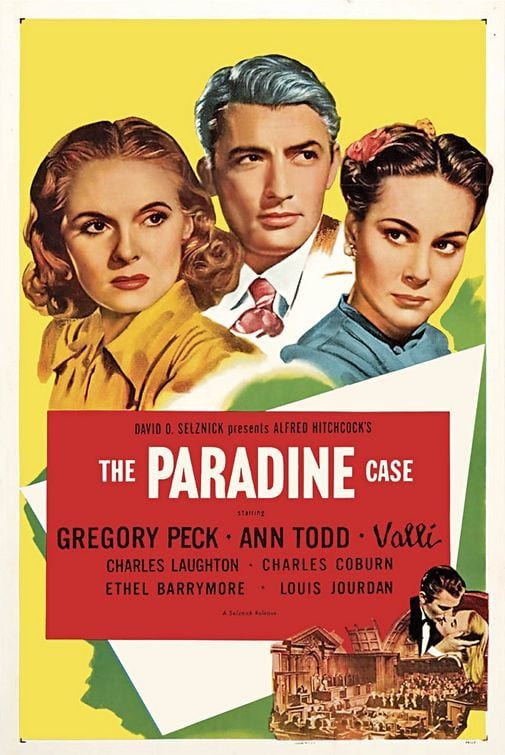
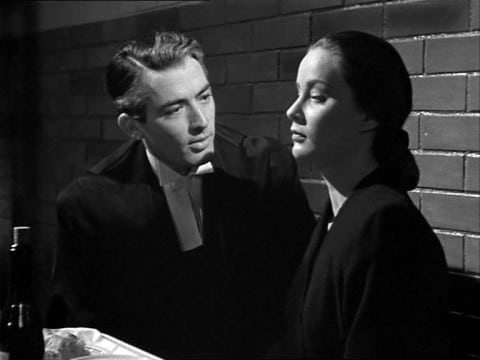
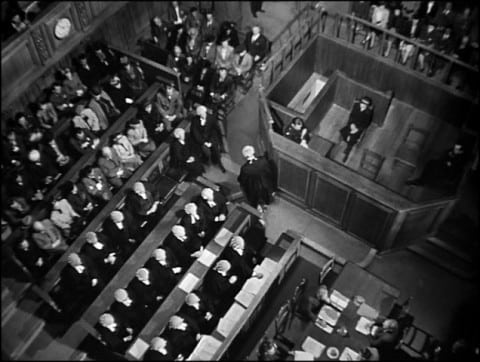




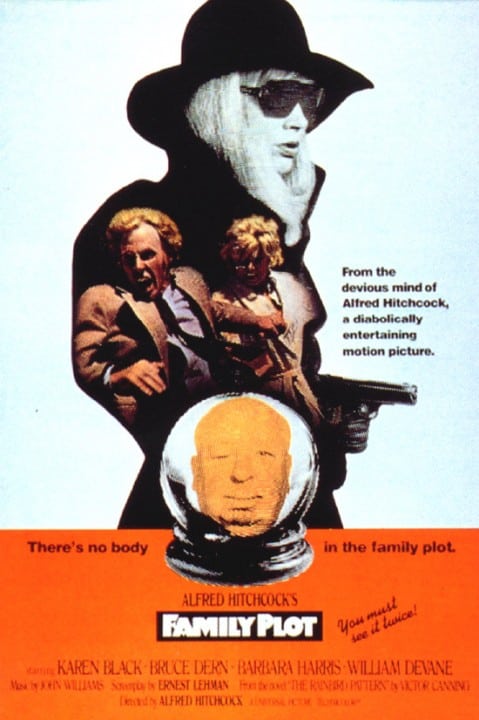
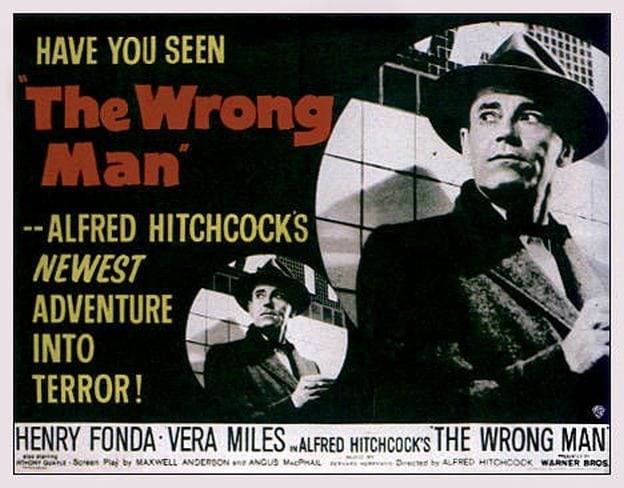
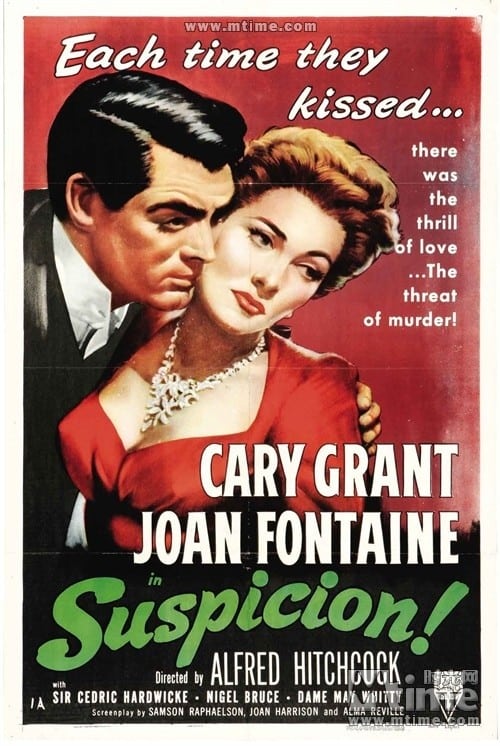
The woman who does not require validation from anyone …